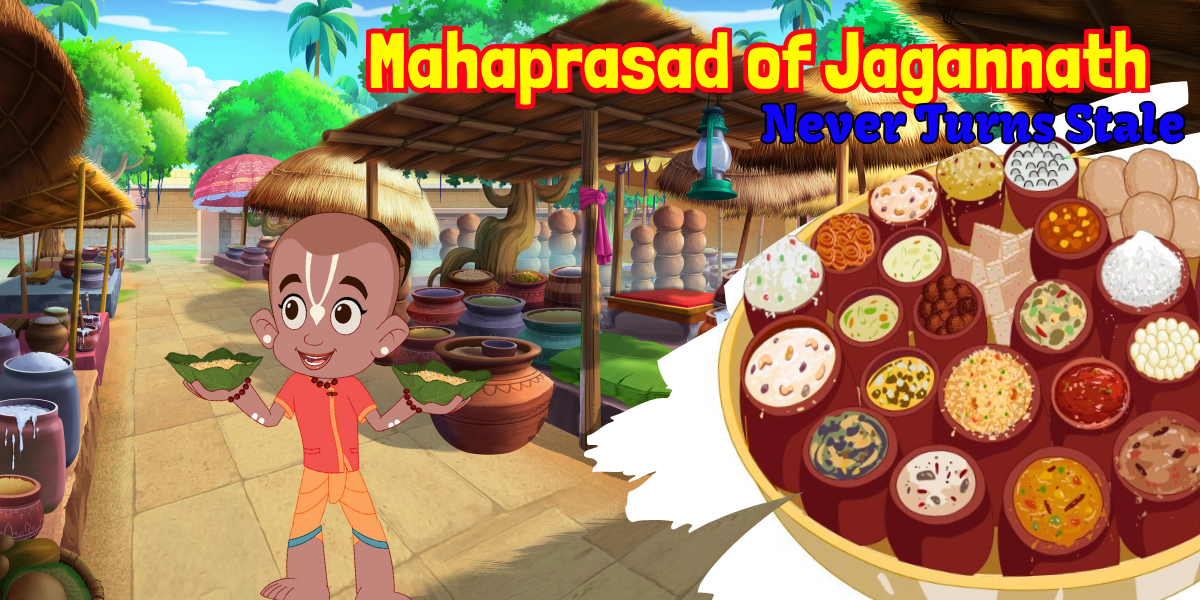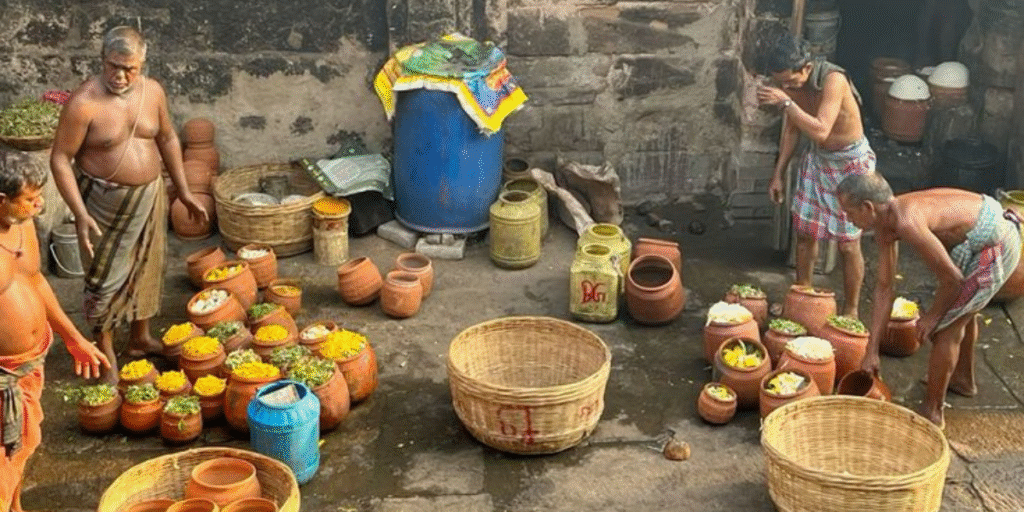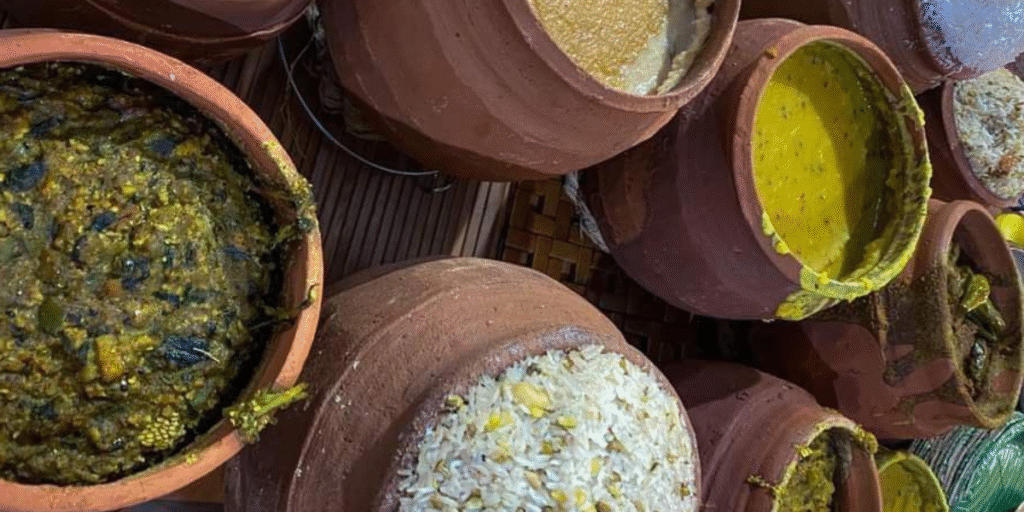
Mahaprasad of Jagannath Never Turns Stale – A Divine Preservation
- Mahaprasad of Jagannath Never Turns Stale
- What Makes Mahaprasad So Special?
- Scientific Curiosity vs. Spiritual Certainty
- Scientific Possibilities (But Not Explanations)
- Spiritual Theories: Where Faith Speaks Louder
- Mahaprasad and Its Eternal Role in Devotees’ Lives
- What Happens to Leftover Mahaprasad?
- Philosophical Reflection: What Does It Teach Us?
- Conclusion
Mahaprasad of Jagannath Never Turns Stale
The Mahaprasad of Jagannath—the sacred food offered at the Puri temple—is no ordinary meal. Cooked in huge quantities and left in the open for hours, it never turns stale, never smells, and never loses taste. In the humid coastal town of Puri, this divine phenomenon continues to defy logic and science, leaving only one explanation: it’s preserved by the grace of Lord Jagannath.
What makes this possible? Why does this divine food defy the natural laws of decomposition?
This is not merely a question of preservation—it is a window into the divine mystery of Lord Jagannath’s grace.
What Makes Mahaprasad So Special?
Mahaprasad is the final form of food that has been:
-
Cooked in the temple kitchen,
-
Offered first to Lord Jagannath, Balabhadra, and Subhadra,
-
Then offered to Maa Bimala, the Shakti of the temple (only after which it becomes Mahaprasad),
-
Finally, distributed to devotees at Ananda Bazaar.
This sequence of ritual offerings transforms a simple vegetarian meal into God’s own meal, imbued with spiritual energy.

Scientific Curiosity vs. Spiritual Certainty
While devotees accept the phenomenon as a matter of faith, scientists and researchers remain baffled.
Even those who try to replicate the cooking method outside Puri find that the food spoils normally within a few hours.
So, what is different in Puri?
Scientific Possibilities (But Not Explanations)
Let’s consider some factors:
- Alkaline Properties of Clay Pots
Earthen pots have natural anti-bacterial and alkaline properties that help delay spoilage. However, this only explains a few hours, not days of preservation.
- Smoke from Traditional Wood Fire
Smoke from mango wood, used in the Rosaghara, may create a mildly antiseptic environment.
- High Use of Natural Preservatives
Turmeric, rock salt, and ghee—all natural preservatives—are liberally used in cooking.
- Ritual Precision
Cooking is done at specific astrological timings, with absolute ritual discipline. Could timing and cosmic alignment have a role?
Even combining all these, the mystery remains only partially addressed. Science may offer theories, but no conclusive answer has ever been given.
Spiritual Theories: Where Faith Speaks Louder
Devotees believe the food remains fresh because:
- It is Consumed by the Divine First
What has been tasted by the Lord Himself is no longer subject to the impurities of the material world.
- Presence of Maa Bimala
The offering to Goddess Bimala transforms Naivedya into Mahaprasad. She is believed to infuse divine Shakti, preserving it with her power.
- Divine Energy Field of the Temple
The Sri Jagannath Temple is a cosmic power center, aligned with specific astronomical and geomagnetic points. The entire temple behaves like an energy field, preserving the sanctity of everything inside.
Mahaprasad and Its Eternal Role in Devotees’ Lives
For many devotees:
-
A pinch of Mahaprasad is considered medicine for the soul and body.
-
It is taken home and kept in sacred places for protection, healing, and good fortune.
-
During funerals or serious illnesses, Mahaprasad is often given to the dying, believed to ensure mukti (liberation).
Even ants, insects, or dogs avoid Mahaprasad once it is offered. It is said, “Even nature respects what belongs to the Lord.”

What Happens to Leftover Mahaprasad?
Surprisingly, even if Mahaprasad remains unconsumed for days:
-
It does not smell bad.
-
It is often shared with cows or preserved for later.
-
In some households, it is sun-dried and reused in sacred functions or crushed into powder and mixed with tulsi water for blessings.
This again points to its incorruptible nature, unlike any ordinary food.
Philosophical Reflection: What Does It Teach Us?
Mahaprasad is more than divine food—it’s a spiritual metaphor:
-
Purity born of devotion never decays.
-
What is offered to God becomes timeless.
-
Grace defies logic, and some truths are meant to be experienced, not explained.
It shows that God doesn’t just accept offerings—He transforms them, making them worthy of eternal use.
Conclusion
Why Mahaprasad never turns stale remains a divine riddle—one that neither modern science nor culinary analysis has solved. And maybe it’s not meant to be solved.
Because Jagannath is not just a deity of idols and rituals—He is a living force, and Mahaprasad is the proof of His presence, every single day.
So next time you receive Mahaprasad in your palms, don’t just eat it—cherish it, honor it, and remember—you’re tasting something that exists beyond time.


Leave a reply here
Your email address will not be published. Required fields are marked *